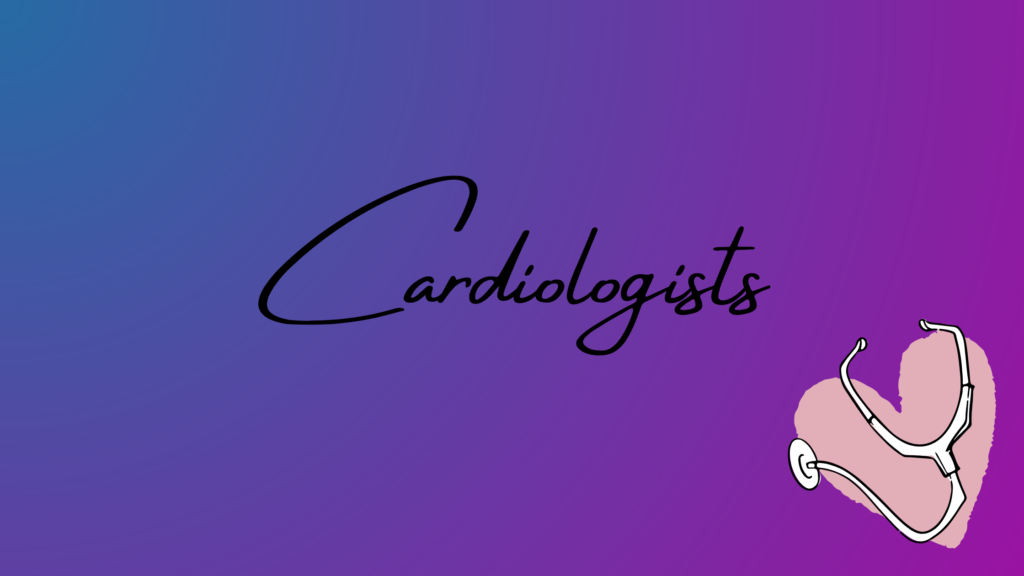❤️ About Cardiologists
A cardiologist is a medical doctor who specializes in diagnosing, treating, and preventing diseases of the heart and blood vessels (the cardiovascular system). They are experts in managing conditions such as heart attacks, hypertension, arrhythmias, and heart failure.
🩺 What Does a Cardiologist Do?
Cardiologists:
- Diagnose and treat heart and blood vessel diseases
- Order and interpret tests like:
- Electrocardiograms (ECG/EKG)
- Echocardiograms
- Stress tests
- Cardiac catheterizations
- Prescribe medications for:
- High blood pressure
- High cholesterol
- Heart failure
- Arrhythmias
- Perform or assist with procedures like:
- Angioplasty
- Stent placement
- Pacemaker implantation
- Provide lifestyle guidance on:
- Diet
- Exercise
- Smoking cessation
👨⚕️👩⚕️ Types of Cardiologists
| Type | Focus Area |
|---|---|
| General Cardiologist | Diagnosis and treatment of common heart conditions |
| Interventional Cardiologist | Performs procedures like angioplasty and stent placement |
| Electrophysiologist | Specializes in heart rhythm disorders (arrhythmias) |
| Heart Failure Specialist | Manages advanced heart failure and may help with transplants |
| Pediatric Cardiologist | Treats heart problems in children |
📚 Training Path
- Medical Degree (MBBS or MD)
- Internal Medicine Residency (3 years)
- Cardiology Fellowship (3+ years)
- Optional Subspecialty Training (1–2 years)
🛑 When to See a Cardiologist
You might be referred to a cardiologist if you:
- Have chest pain or tightness
- Experience shortness of breath, dizziness, or fainting
- Have high blood pressure or high cholesterol
- Have a family history of heart disease
- Have palpitations or irregular heartbeat
- Need ongoing care after a heart attack or stroke
